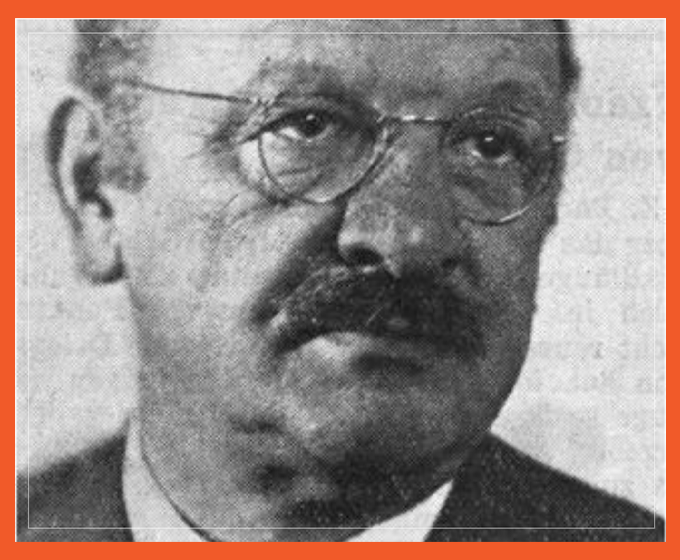
Oskar Fischer published research on Alzheimer’s patients more than 100 years ago.
OCTOBER 2, 2020 — It’s been more than 112 years since two scientists, Oskar Fischer and Alois Alzheimer, published the first descriptions of the condition we now call Alzheimer’s disease. Despite having spent billions of dollars on research, we still haven’t advanced our understanding or explanation of the cause of a disease that affects roughly 50 million people worldwide.
The challenge of Alzheimer’s disease prompted businessman James Truchard to gift $5 million to UTSA’s College of Sciences to establish The Oskar Fischer Prize.
The goal is simple, create the Oskar Fischer Prize to find a comprehensive answer to the Alzheimer’s disease puzzle and change the view of how we’re looking at the disease.
Jenny Hsieh, a professor of biology at UTSA and director of the Brain Health Consortium, interviewed Truchard to learn more about the purpose and passion behind The Oskar Fischer Prize.
What led you to create The Oskar Fischer Prize and who was Oskar Fischer?

I started when I retired back in 2016 and was looking for a topic that was very challenging that I could work on to stay engaged in technology and science. I picked Alzheimer’s to work on because we’ve been working on it for over a hundred years—since Oskar Fischer and Alois Alzheimer published on the subject—and we don’t seem to be much closer to an answer for what causes Alzheimer’s than these researchers were over a hundred years ago. It certainly was a topic that is a challenging one and looked like a good opportunity for me.
Oskar Fischer published research the same year that Alois Alzheimer did on one of Alzheimer’s patients, Augusta Deter. He was working as a colleague of Arnold Pick, who’s famous for Picks disease, in a research laboratory that was world-famous at that time for brain research. Fischer did very thorough work with a large number of brains, and his work was very detailed, most notably his descriptions and drawings were very detailed.
What are you hoping to achieve with this unique prize?
I’m hoping that there’s a genius out there that can apply their knowledge and the vast amount of information that’s available to help solve this problem. So I hope to see experts in the field who’ve been working on Alzheimer’s research for years and folks that come in and give a fresh view on the disease. For background, a lot of time has been spent in the area of amyloid beta but without any clear answers.
Since the prize is not a grant and it’s not for research funding, how will the prize help researchers find answers and treatments for the disease?
Well, in my opinion, if you look at the amount of money spent on research, if you spend a few more dollars it can only make a tiny difference in the outcome for Alzheimer’s research. That alone is why I decided we need a different approach, and the prize is an attempt to get scientists to step outside the box that they normally work in.
This is a personal prize, so researches have a chance to take some risks in answering the question of Alzheimer’s. A little bit more research may be helpful, but unless you have a strong and compelling idea for the research, it’s not clear that you’ll get a significant outcome. By making it a prize, I hope to create out-of-the-box thinking that accomplishes a lot more than I could possibly do with one more research grant.
The Oskar Fischer Prize is now accepting entries through December 15, 2020. Your idea could help solve the Alzheimer’s disease puzzle and win you up to $2 million.
Any final words for those wanting to participate in The Oskar Fischer Prize?
I wish to all the contestants good luck on their journey to finding an explanation for the cause of Alzheimer’s. I think we can together move the needle on Alzheimer’s research and help the millions of sufferers of this disease. We need answers, and the time has come to really take a unique and new look—so go for it and come up with the answer for us!
UTSA Today is produced by University Communications and Marketing, the official news source of The University of Texas at San Antonio. Send your feedback to news@utsa.edu. Keep up-to-date on UTSA news by visiting UTSA Today. Connect with UTSA online at Facebook, Twitter, Youtube and Instagram.
Move In To COLFA is strongly recommended for new students in COLFA. It gives you the chance to learn about the Student Success Center, campus resources and meet new friends!
Academic Classroom: Lecture Hall (MH 2.01.10,) McKinney Humanities BldgWe invite you to join us for Birds Up! Downtown, an exciting welcome back event designed to connect students with the different departments at the Downtown Campus. Students will have the opportunity to learn about some of the departments on campus, gain access to different resources, and collect some giveaways!
Bill Miller PlazaCome and celebrate this year's homecoming at the Downtown Campus with food, games, giveaways, music, and more. We look forward to seeing your Roadrunner Spirit!
Bill Miller PlazaThe University of Texas at San Antonio is dedicated to the advancement of knowledge through research and discovery, teaching and learning, community engagement and public service. As an institution of access and excellence, UTSA embraces multicultural traditions and serves as a center for intellectual and creative resources as well as a catalyst for socioeconomic development and the commercialization of intellectual property - for Texas, the nation and the world.
To be a premier public research university, providing access to educational excellence and preparing citizen leaders for the global environment.
We encourage an environment of dialogue and discovery, where integrity, excellence, respect, collaboration and innovation are fostered.